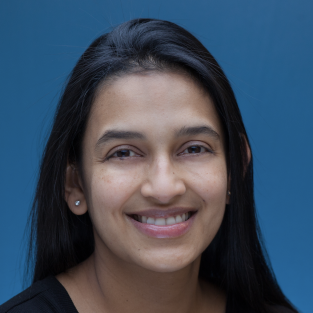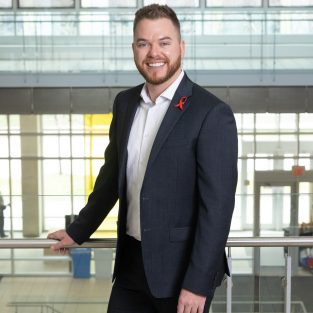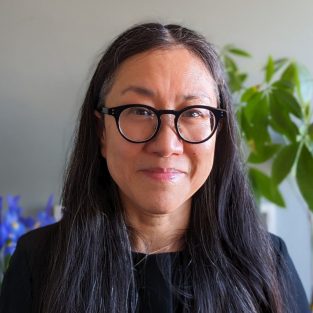York is producing purposeful research and innovation that transforms knowledge into action and creates tangible impacts. Over the past year, York has launched the new Strategic Research Plan, and continues to engage in extraordinary research on critical issues such as advancing disease outbreak management, decarbonization, researching ethical AI, and improving skills development, community well-being, homelessness and racial equity. This year, York experienced significant growth in our total external sponsored research income with a total of $111.45 million, as well as our tri-council income of more than $79 million.
We are leveraging scholarship and our campuses as Living Labs to solve complex global problems to realize a more equitable and resilient future.
By the Numbers
- $111.45M
- total externally sponsored research income (6% increase from 2022, marking a new record)
- $79191350
- Tri-Council Income in 2022
- 3014
- number of scholarly publications submitted by York researchers
- 47
- number of large scale applications and dollars awarded (23% increase since 2021)
- 283
- entrepreneurship workshops, presentations and speaking engagements delivered by Innovation York
- $36.4M
- funding raised by start ups (117% growth compared to previous year)
- 400%
- increase in the value of commercialization grants supported for a total of $409,340 in 2022

Empowering cutting-edge sustainability research
York awards $50,000 to research projects to advance sustainability
In May 2023, York University announced the recipients of its second round of funding from its Sustainability Innovation Fund (SIF). The SIF is designed to bolster York-based sustainability projects that contribute to its goal of reducing greenhouse gas emissions by 45 per cent by 2030, achieving net-zero emissions by 2049 and to the Sustainable Development Goals more broadly.
The SIF awarded a total of $50,000 to four projects. One project, “Determining the merits of large battery electricity storage at York University” will be led by Tim Hampton and Mark Winfield from the Faculty of Environmental and Urban Change, Hany Farag from the Lassonde School of Engineering and Steve Prince from Facilities Services. It will assess the environmental reduction impact, the campus infrastructure fit, and cost reduction potential of a large battery storage system at York.
The other projects that were awarded funding through the SIF are:
- Living Learning Community – Sustainability: a pilot project by Residence Life, which will address sustainability during the 2023-2024 academic year.
- York University Composting Centre: a project to continue development of an on-site composting centre.
- Green Career Fair: Exploring Climate Careers to Achieve Net Zero: this project will host an annual Green Career Fair at York.

Combatting global antimicrobial resistance
York research team awarded $8.7 million to advance global health policymaking
In October 2022, the Global Strategy Lab at York University was awarded $8.7 million from the Wellcome Trust to establish the AMR Policy Accelerator, an initiative that will bridge the gap between science and policy in addressing antimicrobial resistance (AMR) worldwide.
The Global Strategy Lab, which operates at York University and the University of Ottawa, advises world governments and public health organizations on designing laws, policies and institutions that address global health threats for a healthier world. In line with this goal, the AMR Policy Accelerator will conduct rigorous interdisciplinary research, develop practical resources and offer tailored advisory services to governments, public health institutions and decision-makers to ensure sustainable, effective, and equitable antimicrobial use for all.
Leading the initiative are York Professors Steven J. Hoffman and Susan Rogers Van Katwyk, with the assistance of prominent researchers: Professors Mathieu Poirier, Adrian Viens, Tarra Penny from York University, and Professor Patrick Fafard from the University of Ottawa.
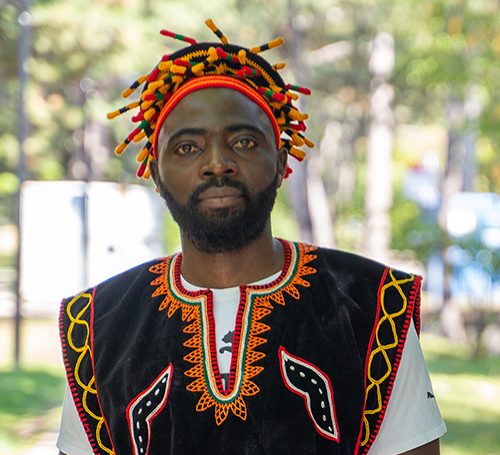
Improving global public health preparedness, response and equity
York leads five-year project to improve global healthcare systems
In September 2022, York University received a $7.25-million grant from the International Development Research Centre (IDRC) to lead a five-year project aimed at improving disease outbreak management and policies for vulnerable populations.
Led by Assistant Professor Jude Kong from the Faculty of Science, the project will develop equitable and responsible AI solutions and big data approaches to enhance public health outcomes in low- and middle-income countries by prioritizing prevention, early detection and control of emerging infectious diseases while acknowledging the ethical implications of AI solutions and the role of climate change.
Through a diverse array of partnerships, the project’s goal is to improve public health preparedness and response and address global inequities in ways that serve marginalized communities and individuals.

Advancing community health, well-being and equity
York receives a $2.5 million grant from the CIHR to drive positive change in healthcare
York University’s cutting-edge research endeavors have received a substantial financial boost, with the Canadian Institutes of Health Research (CIHR) awarding more than $2.5 million to two research projects that are designed to support community health and well-being.
The first project – led by Associate Professors Yvonne Bohr and Nicole Muir from York’s Faculty of Health, in collaboration with Assistant Professors Matthew Keough and Skye Fitzpatrick and supported by an international team of researchers – will receive $1,797,752 over four years to support the mental health of Inuit youth in remote Nunavut communities, where suicide rates are disproportionately high as a result of systemic discrimination and intergenerational trauma. By collaborating with community elders, the researchers plan to develop culturally sensitive virtual mental health resources, including e-games and immersive virtual reality, that are deeply rooted in traditional Inuit philosophy and scientific knowledge.
The second research project, led by Professor Peter Backx from the Faculty of Science, will receive $749,700 over five years to investigate the causes of atrial fibrillation, the most common kind of cardiac arrhythmia. The researchers aim to gain a better understanding of the condition in order to expand the range of treatment options in ways that reduce the significant individual, social, and economic burden caused by increased stroke and heart failure risks.

York-led research initiative aims to end homelessness
York’s Canadian Observatory for Homelessness (COH) is leading multiple research projects focused on addressing homelessness for disadvantaged populations
York University’s Canadian Observatory for Homelessness (COH), led by Faculty of Education Professor Stephen Gaetz, is driving positive change through research projects focused on preventing and ending homelessness.
The COH was awarded $425,840 by Employment and Social Development Canada to assess the effectiveness of eviction prevention and shelter diversion programs in use by communities throughout Canada and the U.S. This project also has a Decolonizing, Equity, Diversity and Inclusion (DEDI) mandate, which aims to develop culturally relevant programming. Six community partners are involved, including two Black-led and two Indigenous-led.
The COH partnered with Na-Me-Res to evaluate Sagatay (A New Beginning), a unique culture-based program providing programming and housing for Indigenous men transitioning from the prison system. The evaluation combines Indigenous and Western approaches to research.
In collaboration with Faculty of Education Professor Carl E. James and Professor Gillian Parekh, the COH is conducting a study on Black youth’s pathways into homelessness in the Greater Toronto Area.
Nationally, the COH is working with End Homelessness Winnipeg to explore Indigenous Peoples’ experience of migration between urban and home communities.
The COH’s research on youth homeless prevention continues to gain international reach. The Making the Shift Youth Homelessness Social Innovation Lab was designated a Toronto Centre of Excellence (TCE) by the United Nations Economic Commission for Europe (UNECE). The TCE has been an important tool for international knowledge exchange and for creating global partnerships.

York invests more than $4 million to advance SDGs research
Seven research projects will address globally complex issues
From climate change and healthcare to genocide and colonialism, York’s researchers have the freedom and flexibility to address some of the world’s most pressing challenges through the Catalyzing Interdisciplinary Research Clusters (CIRC) program.
In its second round of funding, York invested $4.05 million to support seven groundbreaking interdisciplinary research projects that have the potential to catalyze positive change. The projects will pursue research in areas ranging from water remediation, management of infectious disease through technological innovation, the effects of climate change on ecosystems and human populations, visual neuroscience and understanding the pathway from colonial genocide to building just relationships.
Established in 2021, York has invested a total of $7.5 million to date through the CIRC program. The CIRC program funds research excellence with an emphasis on projects that cross the mandates of at least two of the three federal granting councils. CIRC is designed to promote interdisciplinary research across all faculties and nurture early-career researchers while advancing York’s University Academic Plan, specifically its aspiration to advance the SDGs.
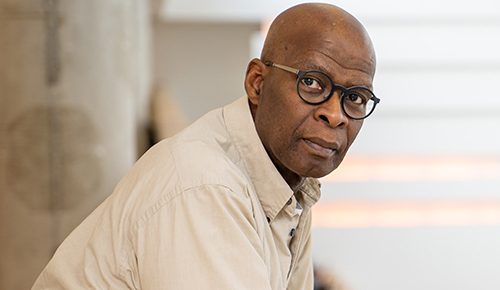
York and Walmart Foundation team up to support social mobility research
The research will explore social capital within Black and racialized communities
York University has long recognized the important role of interdisciplinary research in tackling complex global problems such as systemic racism and discrimination.
In June 2023, the Walmart Foundation donated USD $750,000 to York University to support a groundbreaking research project led by esteemed researcher Carl James, the Jean Augustine Chair in Education, Community and Diaspora in York’s Faculty of Education.
The three-year project, which explores social capital within Black and racialized communities, aims to empower marginalized individuals to achieve their career aspirations and contribute to a more equitable, inclusive and diverse society, values that closely align with York’s.
The project is a partnership between Dr. James, the Coalition of Innovation Leaders Against Racism (CILAR) and York’s School of Continuing Studies. It will help to inform the development of policies, systems, and programs that advance equitable social mobility in education, the workplace and daily life.
This newest donation builds upon Walmart Canada’s previous grant of CAD $75,000, which supported James’ research on post-secondary education accessibility for Black youth.

New Connected Minds research initiative awarded a historic $105.7 million from Canadian government
The research aims to optimize the benefits and mitigate the risks of a techno-social collective
York University celebrated a historic research funding award with a grant of $105.7 million from the Canada First Research Excellence Fund (CFREF) for a transformative new research initiative called Connected Minds: Neural & Machine Systems for a Healthy, Just Society.
Connected Minds is a first of its kind, interdisciplinary research program that will work to ensure the future of AI is fair and equitable. The seven-year project will create an international hub of expertise in socially responsible research and technology to optimize the societal benefits and mitigate the risks of human-machine interactions. The project draws on expertise from five faculties – Health, Osgoode Hall Law School, Lassonde School of Engineering, Liberal Arts & Professional Studies, and the School of the Arts, Media, Performance and Design, as well as six organized research units.
With combined contributions from multi-sector partners, municipal governments and collaborating institutions, the total funding amounts to $318.4 million, making Connected Minds the largest York-led research program in the University’s history.
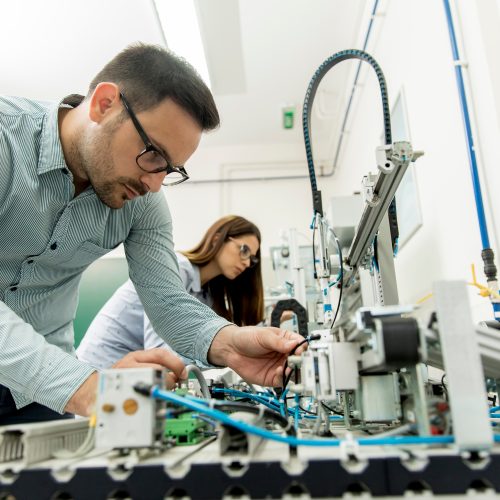
York faculty recognized by several prestigious research and scholarship programs
York researchers and scholars recognized for their contributions to purposeful research
York has expanded its extraordinary scholarship and research excellence with the addition of 14 new and 11 renewed Canada Research Chairs (CRC). The CRCs are leading critical research in AI, health, sustainability and social justice. Antony Chum, an assistant professor in the Faculty of Health was awarded a CRC Tier II in Population Health Data Science. Chum is investigating the epidemiology of deaths and diseases of despair as a unified phenomenon.
Eight researchers were also announced as York Research Chairs (YRC), York’s internal counterpart for the CRC program. Shital Desai, an assistant professor in Interaction Design at AMPD, was awarded a YRC in Accessible Interaction Design. Her research pursues human-centered design systems with a focus on people with dementia, caregivers and health care practitioners.
The Royal Society of Canada, which recognizes leading intellectuals, scholars and artists, welcomed four new fellows and two members from York, including Faculty of Education Professor Celia Haig-Brown, an Anglo-Canadian scholar committed to developing respectful approaches to working with Indigenous collaborators.
CIFAR, a global research organization, also announced three new fellows from York, including York Faculty of Science Professor Hélène Mialet as co-director of CIFAR’s Future Flourishing program which examines the definition of being human.

Getting “smart” about campus energy
New technology will enable York to meet its sustainability goals while serving as a teaching and research tool
York University received over $2 million in funding through the Government of Canada’s Decarbonization Incentive Program, which will boost York’s capacity to deliver energy efficient utilities and act as a living lab for researchers and students.
This funding will support the installation of a new Energy Management Information System (EMIS) at the Keele campus – a state-of-the-art system that that will enable cloud-based software with AI capabilities to analyze and optimize existing building energy in real time with the goal of controlling campus comfort and reducing unnecessary use of electricity and gas – turning our campus into a smart campus.
EMIS will also enable York to leverage its campuses as living labs to implement new initiatives that contribute to the learning experiences of students and provide researchers with the real-time knowledge and data they need pursue relevant research.
The data and information from the EMIS will also be app-based and available to everyone at York via their smartphones, with the goal to empower and inspire the entire York community to personally commit to upholding sustainability in their own lives and work.

York University releases its new Strategic Research Plan 2023-2028
The plan will explore global opportunities in areas such as disruptive technologies, Indigenous futurities and climate action
This past spring, York unveiled a new strategic research plan that aims to accelerate and intensify the institution’s research enterprise over the next five years. Knowledge for the Future: From Creation and Discovery to Application was developed after months of open forums, public consultations, and input from over 1,500 members of the campus community.
The plan showcases the breadth and depth of research excellence at York and offers a vision for the University to further develop its research, scholarship, and creative activity. The strategic research plan is a vital element to complement the UAP that charts York’s overall direction.
The plan identifies six areas of existing research strengths and six areas of opportunity for York to prioritize beginning this year through to 2028.
Six areas of strength:
- Advancing Fundamental, Discovery and Theoretical Research and Scholarship
- Illuminating Cultures and Cultivating Creativity
- Building Healthy Lives, Communities and Reimagining Futures
- Reaching New Horizons in Science, Technology and Society
- Pursuing Justice, Equity and Sustainability: From Urban Dynamics to Global Challenges
- Elevating Entrepreneurship Through Socially Responsible Innovation
Six areas of research opportunity:
- Digital Cultures and Disruptive Technologies
- Healthy Communities, Equity and Global Well-being
- Indigenous Futurities
- Climate Action for a Sustainable Planet
- Social Justice, Peace and Equitable Relations
- Inter and Transdisciplinary Research Innovation
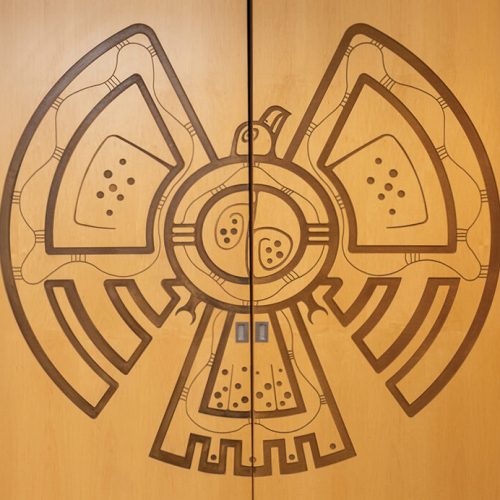
Indigenous Research Ethics Board sets nationwide precedent
The Board will review and approve research ethics involving Indigenous peoples
Announced July 2023, York University will soon be home to the first wholly autonomous Indigenous Research Ethics Board (IREB) for a non-Indigenous post-secondary institution in Canada. The board reflects York’s ongoing efforts in decolonizing research and will ensure appropriate sensitivity to cultural and community rights, roles, and responsibilities across any research project.
Research involving human participants at York is currently subject to mandatory review by the Human Participants Review Committee (HPRC), which ensures the health and safety of all participants, including Indigenous peoples. But Indigenous leaders on campus, including the Indigenous Council at York, identified a greater need for specific-knowledges and leadership within research supports, and greater Indigenous involvement in the approval and knowledge production process. This work prompted the creation of the IREB, which will also help advance several priorities of the University Academic Plan, including diversifying learning, working in partnership with Indigenous communities, and continuing action to support reconciliation.
The IREB will fully review and approve all research ethics involving Indigenous peoples from low to high risk and propose either approval, modification, or rejection. The IREB is unique in that they will only report to Senate and are constituted separately from the HPRC.
The IREB will consist of five University faculty members, and both undergraduate and graduate students who are representative of a diversity of First Nations, Inuit, and Metis peoples and gender identities. It will also include three external Elders or knowledge keepers and three non-University affiliated Indigenous community representatives. The board’s membership will be established in early fall 2023.

Linking research to action
Mobilize YU is accelerating knowledge mobilization (KMb)
Led by Innovation York, MobilizeYU is an eight-week course designed for faculty researchers, postdoctoral fellows, graduate students, staff, alumni, and community partners who are interested in learning more about Knowledge Mobilization (KMb). Taught by leading KMb professionals and researchers, participants learn about theoretical and practical aspects of effective KMb.
York University partnered with several organizations to offer its impactful KMb program, including:
- Leading a Research Impact Canada (RIC) version of the course, offered to 30+ member institutions. The 8-week, self-directed online course benefited 327 participants.
- Working with the Canadian Association of Gerontology – Student Connection for a second year to offer over 70 gerontology graduates across Canada with pre-recorded content featuring gerontological researchers and community partners who helped illustrate lectures through real-world examples.
- Partnering with United Way Greater Toronto Area (UWGTA) to offer a version of MobilizeYU for community serving organizations based on a community needs assessment conducted by York University. In Fall 2022 and Winter 2023, UWGTA and York offered sessions including Knowledge Mobilization Introduction and Planning; Data Equity and Inclusive Knowledge Mobilization Practices; Effective Partnerships; Research Communications; Impact and Evaluation. In total, 121 unique organizations and close to 400 unique participants attended.
Six new Organized Research Units (ORUs) established
Synergistic hubs will examine global issues such as water, social justice and global health
This year, York approved six new ORUs. These ORUs serve as synergistic hubs that pool together interdisciplinary expertise across multiple faculties and disciplines to examine globally important topics such as water sustainability, neuroscience and disaster and risk mitigation. The establishment of six new ORUs brings York’s total to 31.
The new ORUs include:
- The Centre for Artificial Intelligence and Society (CAIS)
- The Centre for Integrative and Applied Neuroscience (CIAN)
- The Institute for Technoscience and Society (ITS)
- The York Emergency Mitigation, Engagement, Response and Governance Institute (Y-EMERGE)
- Manufacturing Technology Entrepreneurship Centre (MTEC)
- One WATER
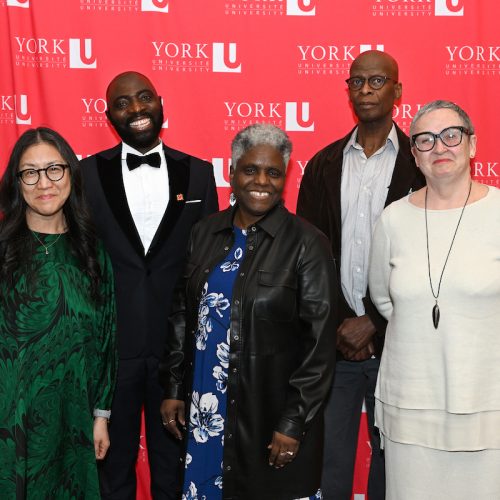
President’s Research Awards recognizes outstanding research impact
Researchers were lauded for their contributions to music, feminist geography, urban mapping and sound art, and AI in global health
More than 70 faculty members were recognized at the 2023 Research Awards Celebration including four researchers who were awarded the President’s Research Awards.
Karen Burke, AMPD, was recognized with the President’s Research Impact Award (PRIA). Karen’s expertise is in the history and performance practices of Gospel music and has worked with major choral ensembles, organizations, schools and church congregations.
Linda Peake, Environmental & Urban Change, was recognized with the President’s Research Excellence Award (PREA). A director of the City Institute at York, Linda is a feminist geographer with research interests in the co-construction of subjectivities and urban places.
Taien Ng-Chan, AMPD was recognized with the President’s Emerging Research Leadership Award (PERLA). Taien is a writer and media artist whose research explores experimental processes of urban mapping and sound art, “object-oriented storytelling” and futurist imaginings of everyday life in the Asian diaspora through immersive cinema, both in VR headset and dome projection modes.
And Jude Kong, Faculty of Science, received the President’s Emerging Research Leadership Award. Jude’s research focuses on the use of AI, mathematical models and system thinking to improve decision-making in global health and clinical public health.

YSpace ELLA expands entrepreneurship support for women across Canada
Accelerator will create thriving environment for women entrepreneurs
Ontario’s first accelerator for women-led products and service-based businesses will expand entrepreneurial support for women across Canada thanks to $3 million from a federal government grant.
Since 2019, YSpace ELLA has been helping women entrepreneurs in Ontario thrive by addressing systemic barriers to success and providing access to resources, skills and mentorship.
The funding will enable ELLA to support women entrepreneurs across Canada through three national programs: ELLA Express, ELLA Ascend and ELLA Altitude. The programs are designed to help women at various stages of their businesses, from launching and growing their businesses, to supporting early-stage businesses and scale-ups. YSpace ELLA provides women entrepreneurs with a range of support in areas such as financing, resources, networks and other supports.
The Women Entrepreneurship Strategy (WES) helped established YSpace ELLA in 2019, leading to a tailored accelerator program for women entrepreneurs working in areas like tech, retail and food and beverage industries. Since its creation, YSpace ELLA has supported 167 women and its ventures have generated $15.9 million.

Boosting Canada’s economic future
York’s leadership in Research Impact Canada (RIC) is equipping Canadians with the skills of the future
York leads Research Impact Canada (RIC), a network of 30 research organizations including universities, colleges, research hospitals and funders, each building capacity to support knowledge mobilization and the impacts of research on broader society.
Founded in 2006 by York University and the University of Victoria, RIC is a member-driven and member-funded network with members from St. John’s to Victoria and with connections to similar networks in the U.S., U.K., Chile, Africa and New Zealand. Since 2019, York has received over $3 million from the Future Skills Centre of Canada to partner on knowledge mobilization services and to build a national community of practice for skills delivery organizations from municipalities, provinces, non-profits and industry across Canada.
This collaboration combines York’s internationally recognized leadership in knowledge mobilization to maximize the societal impacts of research with the Future Skills Centre’s key role in building Canada’s future employment and economic competitiveness.


